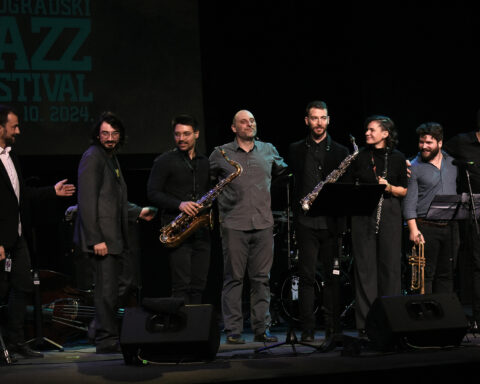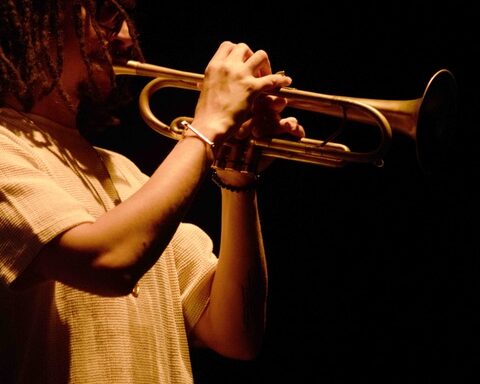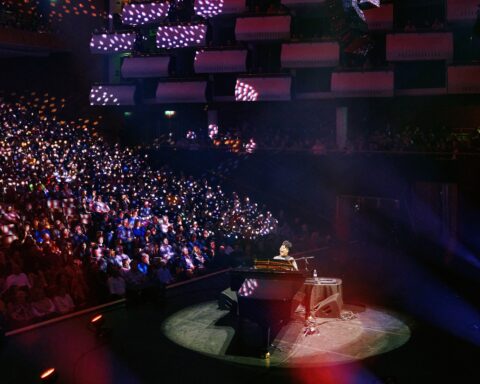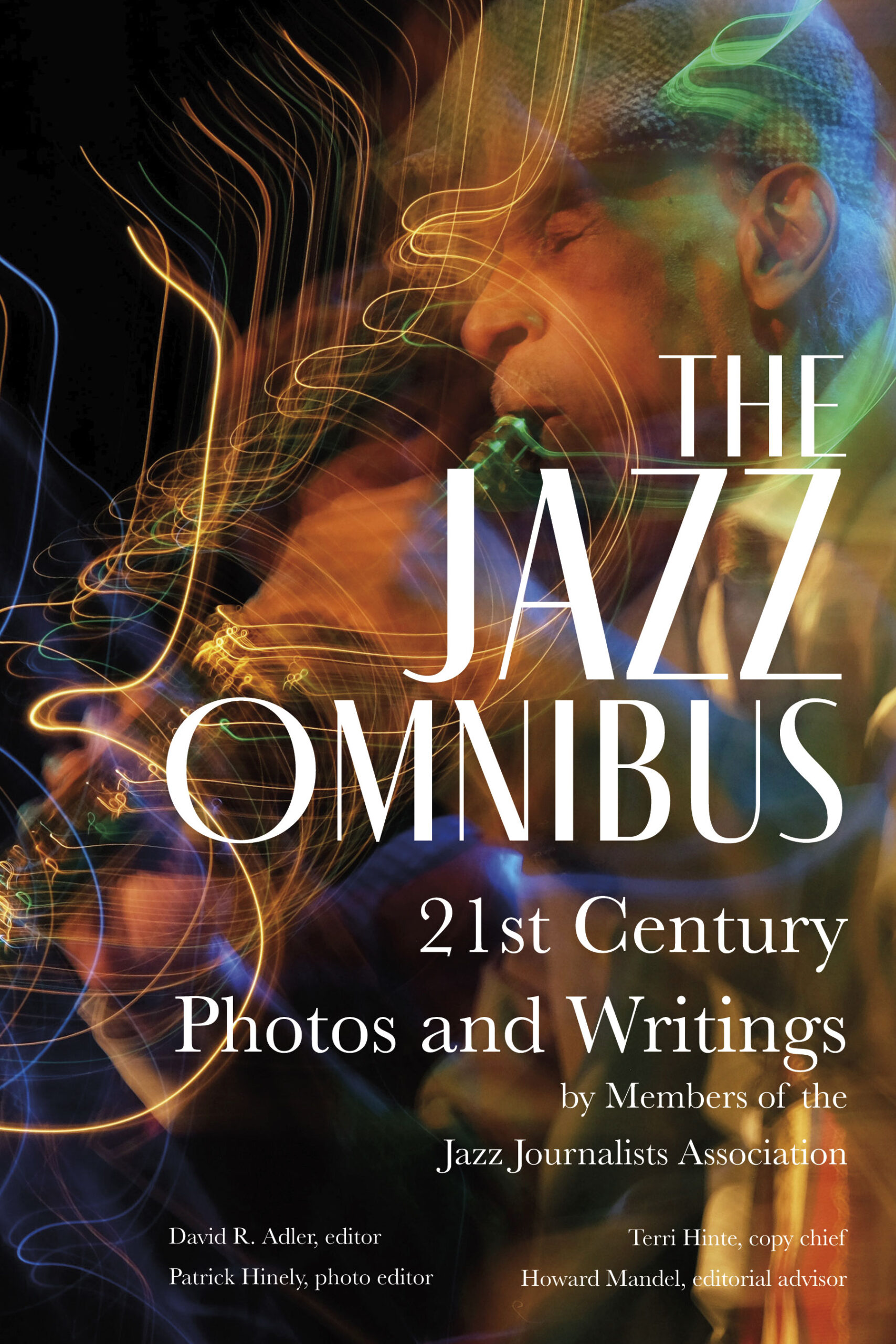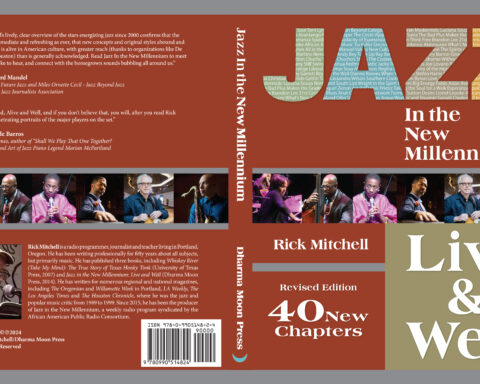 Jennifer Odell is a New Orleans-based contributing writer for Downbeat Magazine and the Offbeat Magazine. We decided tap her knowledge on what it means to cover a jazz festival in the 21st century. We came to Jennifer in the wake of the 2014 New Orleans Jazz and Heritage Festival, the “unofficial launch” of the summer jazz festival season. In this Q&A with Alexander Ariff, Jennifer gives tips on time management, conducting interviews at festivals, and general advice for seasoned and novice jazz journalists going into the field this summer.
Jennifer Odell is a New Orleans-based contributing writer for Downbeat Magazine and the Offbeat Magazine. We decided tap her knowledge on what it means to cover a jazz festival in the 21st century. We came to Jennifer in the wake of the 2014 New Orleans Jazz and Heritage Festival, the “unofficial launch” of the summer jazz festival season. In this Q&A with Alexander Ariff, Jennifer gives tips on time management, conducting interviews at festivals, and general advice for seasoned and novice jazz journalists going into the field this summer.
AA: When you are covering a jazz festival, do you focus on one artist in particular? Does Downbeat assign you any particular performances? How do you budget your time?
JO: It depends on the editor but generally we discuss a handful of artists who will definitely be covered and I try to leave space for surprises. This year, we covered three major jazz acts the first weekend and for the second review, focused on Chick Corea. The local music monthly and alternative entertainment weekly I write for in New Orleans have a good system of sending writers out to cover highlights in bite-sized pieces, which ends up being more reader friendly, especially for a festival with so many stages.
I budget my time by making a spreadsheet that includes back-up plans, music-wise, as well as definite assignments, and notes about what I’m looking for (for example, I might remind myself to stick around at a certain set until I catch some new tunes if I know an artist has been in the studio). My Fest plan generally also includes notes on night shows and optimum nights to stay in and rest. I find that coffee and sleep are worth budgeting in advance.
AA: What general advice about covering Fests might you give to a freelance journalist who doesn’t work for a major publication?
JO: Find someone in the PR department who has time to chat with you or freelancers in the host city who are working for a major publication about possible outlets you may not have considered. This year, Jazz Fest partnered with a new site called AXS for example. I didn’t have the bandwidth to work with them but I put a writer friend who was in need of an outlet in touch with them.
AA: Do you carry a camera or any video recording devices?
JO: I try to avoid backstage interviews in festival situations since it’s loud and distracting, but I avoid using my phone’s recording options bc iPhones tend to fill up, space-wise. For interviews I use a small handheld Sony recorder that clearly indicates when it’s recording so I don’t get left in the lurch. I think good note-taking is more important than anything and try to write down everything I’m seeing onstage as well as any thoughts that could go directly into a review while watching a performance.
AA: How has covering Jazz Fest changed from when you first started? Which was when? Did you make any mistakes along the way?
JO: The first Jazz Fest review I wrote was for Rolling Stone’s website in 1999 and it was hilariously bad. I tried to cover every single thing that happened and because I was so young, pretty much everything wowed me, which was a blessing and a curse back then. Word count restrictions have since become my friend. Another mistake I used to make was waiting too long to write JF reviews; you can do a better job (and are more likely to find your notes legible) right after the fact.
After Hurricane Katrina, we focused an entire summer issue on New Orleans and included extensive Jazz Fest coverage. Researching that and posting a couple times each weekend from the press tent was a good education in speed, accuracy and priority making. Ditto last year’s experience bouncing back and forth between covering jazz for DownBeat and pop shows for MSN’s Music page (which were due the next day). This year I planned out my assignments as carefully as I planned my coverage in order to get the most out of my time and write for more publications, all of which let me focus on music I’m into (DownBeat, OffBeat and the Gambit).
AA: What Fests will you be attending this summer? When should freelance JJA members contact the festivals pressroom?
JO: New Orleans stages a free jazz festival in August focused on traditional jazz called Satchmo Summerfest that I’ll definitely attend and I hope to make it to Outside Lands.
Sooner is probably always better. If you can squeeze enough preview coverage out of your interest in a particular festival it will give you new angles and ideas for review work.
AA: What’s been your experience with conducting interviews with musicians at festivals? Is it a good setting?
JO: It’s way too chaotic in my experience. And I suspect it’s likely a pain for the artist who has a shorter set than if they were talking to you after a club gig. Besides, there are usually numerous performances I’m curious about happening simultaneously at Jazz Fest. Interviews, like sleep and other necessities, take a backseat to live music during those seven days of the year.

